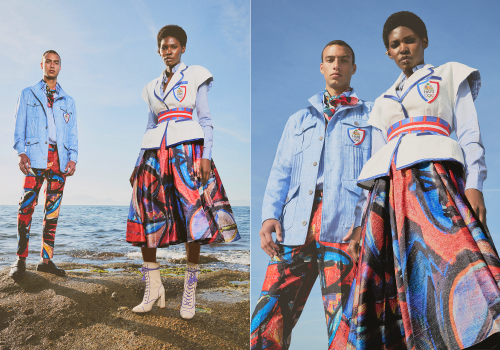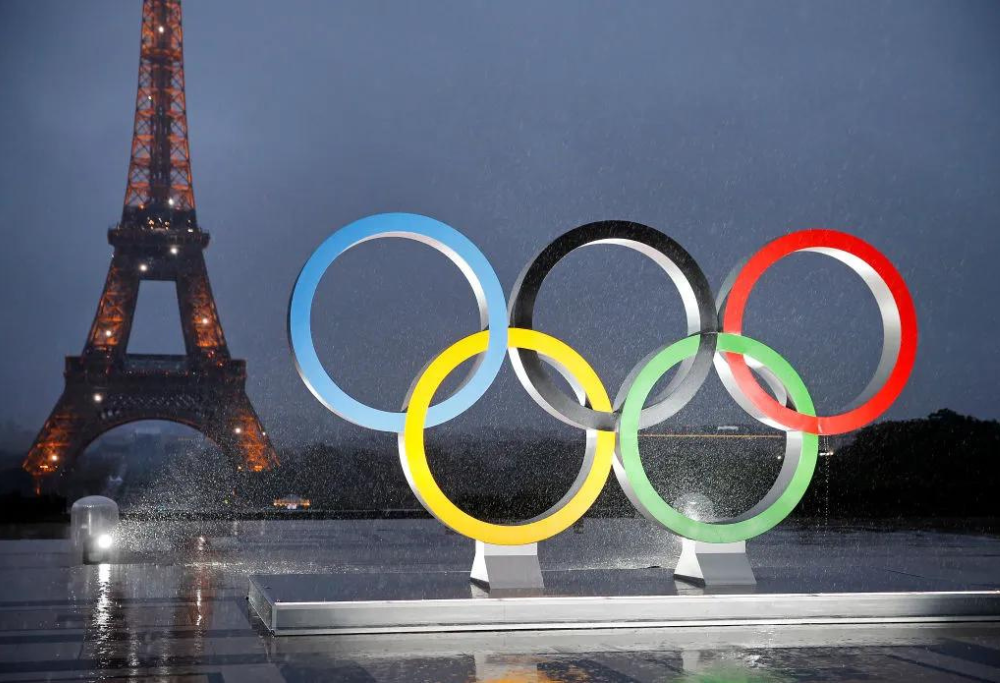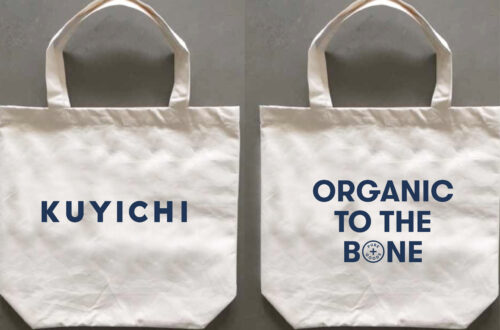The Olympic Games have always been a dazzling showcase of human achievement and global unity. But in 2024, Paris is adding another layer of significance to the event – a commitment to sustainability that will be showcased on the world stage. One of the most visible manifestations of this commitment will be the Olympic uniforms. These uniforms won’t just be stylish; they will be eco-conscious, crafted from recycled materials, organic fabrics, and sustainably sourced fibers.
Reflecting the global shift toward sustainability, the Paris 2024 Olympic uniforms will champion eco-conscious choices in their creation. These uniforms will be a testament to responsible fashion, utilizing recycled fabrics and sustainable dyeing techniques to minimize their environmental impact.
This blog post takes you behind the scenes of this groundbreaking initiative. We’ll explore the innovative materials and designs that are making these uniforms not just fashionable, but also eco-friendly. We’ll delve into the environmental impact of this decision, highlighting how it reduces carbon emissions, minimizes waste, and promotes a circular economy.And we’ll discuss the broader implications for the fashion industry and our planet, demonstrating how Paris 2024 is setting a new standard for sustainability in sports and beyond.
Innovative Materials and Designs in Eco-Friendly Olympic Uniforms
The Olympic uniforms for Paris 2024 are set to be a groundbreaking example of sustainable fashion. These uniforms are being crafted from a mix of innovative materials that prioritize environmental consciousness. Recycled polyester, organic cotton, and sustainably sourced fibers are at the forefront, reducing the need for virgin resources and minimizing waste. Some designs may incorporate upcycled fabrics, giving new life to previously discarded materials.
The use of these eco-friendly materials not only reduces the carbon footprint associated with producing new textiles but also supports the broader movement toward circular fashion. By choosing recycled and organic materials, the Paris 2024 organizers are sending a powerful message about the importance of sustainability in high-profile events. This choice also aligns with the global push for more responsible production practices, challenging traditional methods in the fashion industry.
Environmental Impact: Reducing Carbon Emissions and Waste
The shift towards sustainable uniforms at Paris 2024 is expected to have a significant positive impact on the environment. Traditional textile production is one of the largest contributors to greenhouse gas emissions, water pollution, and waste. By opting for recycled and organic materials, the carbon emissions associated with the production of these uniforms will be substantially lower.
Furthermore, the move towards eco-friendly uniforms promotes a reduction in textile waste. Many of the materials used in these uniforms are biodegradable or recyclable, meaning that even after the Games, the environmental impact will be minimized. This approach not only supports the principles of a circular economy but also sets a new standard for future Olympic Games and other global events.
Broader Implications for the Fashion Industry
The sustainable approach taken by Paris 2024 has the potential to influence the fashion industry far beyond the realm of sports. By showcasing that high-performance athletic wear can be both stylish and eco-friendly, the Olympic Games are setting a precedent that other fashion brands may follow. This could lead to a broader adoption of sustainable practices within the industry, from sourcing to production to end-of-life management of garments.
Moreover, the visibility of the Olympics provides a global platform to highlight the importance of sustainability in fashion. As millions of viewers around the world witness the athletes wearing these eco-friendly uniforms, the message of environmental responsibility will reach a wide audience. This could spark greater consumer demand for sustainable fashion, encouraging brands to innovate and prioritize eco-conscious practices.
Pioneering Sustainable Practices: Paris 2024’s Commitment to the Future
Paris 2024’s decision to prioritize sustainable fashion isn’t just about the uniforms; it represents a broader commitment to eco-conscious practices across the entire event. The Olympic Village, for example, is designed with sustainability in mind, using renewable energy sources, eco-friendly materials, and green infrastructure. This holistic approach aims to reduce the overall environmental impact of the Games, from transportation and accommodations to waste management and energy consumption.
The Paris 2024 Olympics will also spotlight the importance of educating and involving athletes, spectators, and the global community in sustainability efforts. Initiatives such as zero-waste policies, carbon offset programs, and eco-friendly transportation options are being implemented to make the event as green as possible. The goal is not only to set a precedent for future Olympic Games but also to inspire individuals and organizations worldwide to adopt more sustainable practices in their daily lives.
The Role of Technology in Sustainable Olympic Fashion
Advancements in technology play a critical role in bringing the vision of sustainable Olympic uniforms to life. Innovations in textile manufacturing, such as waterless dyeing techniques, 3D printing, and smart fabrics, are being utilized to reduce the environmental impact of producing these garments. For instance, waterless dyeing drastically reduces the amount of water and chemicals typically used in textile production, making the process much more environmentally friendly.
Additionally, 3D printing technology allows for the creation of custom, on-demand uniforms with minimal waste. This technology enables designers to produce only what is needed, reducing excess inventory and eliminating the waste associated with traditional manufacturing processes. Smart fabrics, which can regulate temperature and moisture, offer athletes enhanced comfort and performance while being designed with sustainability in mind.
Legacy of Sustainable Fashion: Beyond Paris 2024
The sustainable initiatives undertaken by Paris 2024 have the potential to leave a lasting legacy that extends far beyond the Games themselves. These efforts are likely to influence future Olympic hosts and other major global events to adopt similar practices. Moreover, the lessons learned from Paris 2024 could drive innovation in sustainable fashion, leading to new materials, technologies, and business models that prioritize environmental responsibility.
Fashion brands around the world are likely to take note of the success of the Paris 2024 uniforms, leading to a broader industry shift toward sustainability. As consumers become more aware of the environmental impact of their clothing choices, demand for eco-friendly fashion is expected to grow. This could result in a more widespread adoption of sustainable practices across the fashion industry, from design and production to distribution and recycling.
Fashion’s Impact Beyond the Field
The sustainable fashion movement at Paris 2024 goes beyond the athletes and uniforms, influencing the entire fashion industry. Major brands and designers are closely watching the Olympics to see how eco-friendly initiatives can be incorporated into mainstream fashion. The visibility of these sustainable practices on a global stage has the power to inspire consumers and companies alike to prioritize environmentally conscious choices.
Collaborations and Global Influence
The uniforms for Paris 2024 are likely to involve collaborations with renowned designers and brands, further amplifying their impact on global fashion trends. These partnerships can help to mainstream sustainable materials and practices, making eco-friendly fashion more accessible and desirable. By aligning with high-profile designers, the Olympics can elevate the conversation around sustainability in fashion, reaching new audiences and creating a ripple effect throughout the industry.
Educating Future Generations
Paris 2024’s emphasis on sustainability serves as an educational tool for younger generations. By showcasing the importance of eco-friendly practices in such a high-profile event, the Olympics can inspire young people to value sustainability in their everyday lives. This educational aspect is crucial for fostering a culture of environmental responsibility that will continue to grow and evolve long after the Games have concluded.
The Economic Implications of Sustainable Fashion
While the primary focus of the Paris 2024 uniforms is on their environmental impact, the economic implications are also significant. The shift towards sustainable fashion can lead to the creation of new jobs in green technologies, manufacturing, and design. Additionally, as demand for eco-friendly products grows, companies that invest in sustainability are likely to see increased consumer loyalty and brand value, further driving the economic benefits of this movement.
Setting a New Standard for Global Events
Paris 2024 is setting a new benchmark for how global events can integrate sustainability into their planning and execution. This shift not only enhances the reputation of the Olympics but also influences other major events to follow suit. By demonstrating that large-scale events can be both successful and sustainable, Paris 2024 is paving the way for a future where environmental consciousness is a fundamental aspect of all major global gatherings.

People also ask
How Are the Paris 2024 Olympic Games Going to Be Eco-Friendly and Sustainable?
The Paris 2024 Olympic Games are setting a new benchmark for sustainability, aiming to be the most eco-friendly Olympics to date. Key initiatives include utilizing 95% pre-existing venues, drastically reducing the need for new construction and its associated environmental impact. All venues are powered by renewable energy sources, and the event will offer double the usual amount of plant-based food options, promoting a more sustainable diet. Additionally, the Paris 2024 organizers are prioritizing waste reduction through a comprehensive circular economy approach. This includes using recycled materials and eco-friendly designs in uniforms, signage, and other event paraphernalia. These measures are expected to significantly reduce the carbon footprint of the Games, making Paris 2024 a model for future international events.
What Are the Colors for the Paris Olympics 2024?
The Paris 2024 Olympics have embraced a bold and unconventional color palette with a particular emphasis on pink. This choice is evident across various branding elements, from the banners to the lanyards worn by participants. The use of pink is a deliberate decision to make the Games visually distinctive and to inject a fresh, vibrant energy into the event. Beyond pink, the official color scheme also includes blue, red, green, and purple, each symbolizing different aspects of the French culture and landscape. These colors are used in conjunction with symbols representing the French art of living, creating a visual identity that is both modern and deeply rooted in the country’s heritage.
What Is the Theme of the Paris Olympics in 2024?
The Paris 2024 Olympics theme is encapsulated in the “Look of the Games,” which aims to visually express the essence of France’s rich cultural heritage. The theme integrates a color palette of blue, red, green, and purple, which not only represent the Olympic rings but also allude to the diversity and vibrancy of France. Symbols used in the theme draw from iconic French locations and cultural elements, reflecting the nation’s art de vivre, or the art of living. This theme is intended to create a unique atmosphere that resonates with both the French people and international audiences, highlighting the country’s historical significance and its modern-day appeal. The visual identity of Paris 2024 is designed to be both celebratory and reflective of the values that define France, making it a standout edition in the history of the Olympic Games.
What Is the Meaning of the Paris 2024 Logo?
The Paris 2024 logo is a powerful symbol that encapsulates multiple elements of French identity and Olympic spirit. At its core, the logo combines three iconic symbols: the Olympic gold medal, the Olympic flame, and Marianne, the personification of the French Republic and a symbol of freedom. The gold medal in the logo represents the ultimate athletic achievement, while the flame signifies the energy and passion that drive the Olympic Games. Marianne’s presence within the logo underscores the values of liberty and equality that are central to both the French nation and the Olympic movement. The design is intended to be inclusive and forward-looking, embodying the spirit of both competition and unity. This logo is more than just a visual identifier for the Games; it is a representation of the enduring ideals of excellence, passion, and freedom that define the Olympics and the host nation, France.
What Is the Tagline of the 2024 Olympics?
The official tagline of the Paris 2024 Olympics is “Games Wide Open.” This slogan encapsulates the spirit of inclusivity and accessibility that the organizers aim to promote. “Games Wide Open” reflects a commitment to breaking down barriers and opening up the Games to a broader audience, both in terms of participation and viewership. The tagline is also indicative of the broader vision for the Paris 2024 Olympics, which aims to inspire a new era for the Olympic and Paralympic movements. The organizers have emphasized that this edition of the Games will be about more than just sports; it will be a celebration of openness, creativity, and innovation. This slogan is a call to action for everyone—athletes, spectators, and global citizens—to engage with the Games in a meaningful way, fostering a sense of unity and shared purpose. By choosing this tagline, Paris 2024 positions itself as a progressive and forward-thinking edition of the Olympics, dedicated to making the Games more relevant and impactful than ever before.






